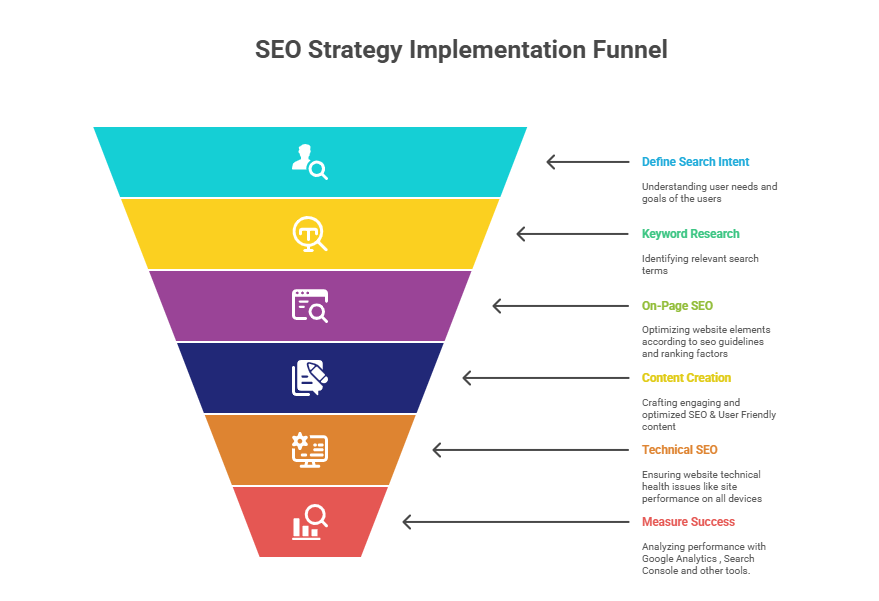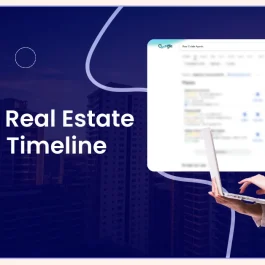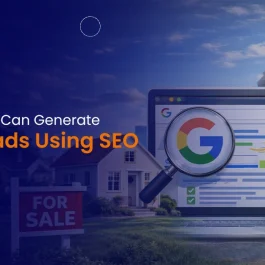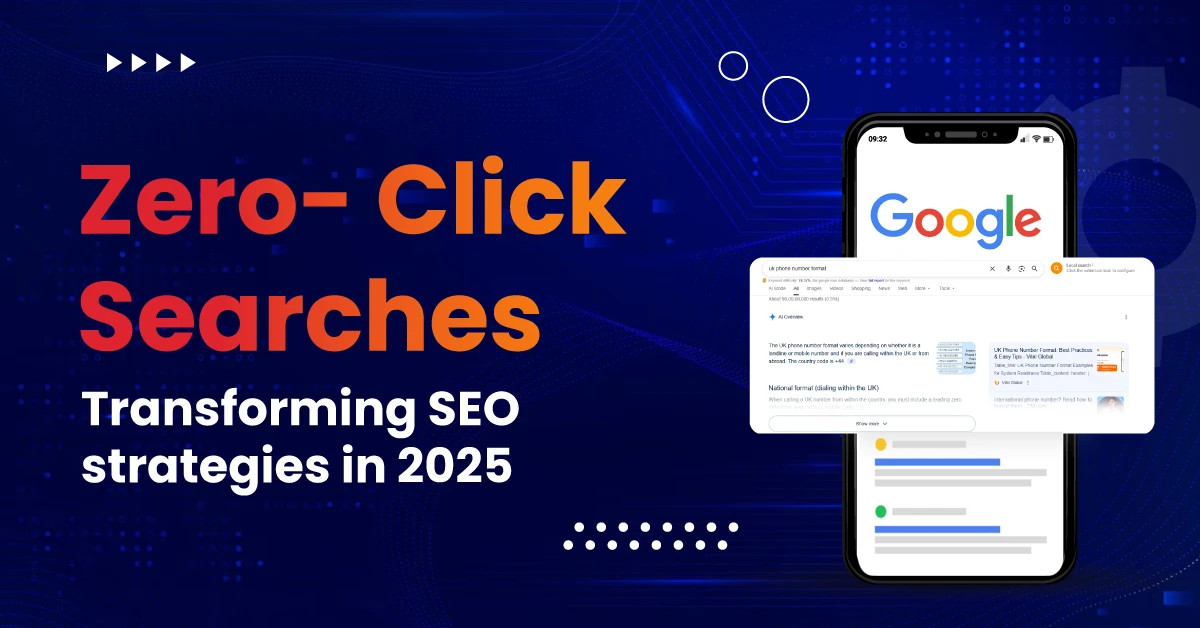7 min read
Introduction to Search Engine Optimization
Search Engine Optimization is a marketing strategy for your website’s long-term visibility. Done right, SEO puts your brand in front of users before they even know they need you. And the best part? You don’t always need an agency to do it.
DIY SEO is about claiming that power for yourself. It’s a strategy with autonomy. Control with clarity. Execution with confidence. Whether you’re a solopreneur, a growing business, or a curious marketer, yes, you can do SEO on your own.
And if you ever want to blend your efforts with performance-focused, AI-powered funnel automation, Varun Digital Media is right beside you.
Table of Contents
Understanding DIY SEO
DIY SEO, or do-it-yourself SEO, means becoming your own digital strategist. You research, you optimize, and you implement. But this isn’t guesswork, it’s a system.
With tools, insights, and some structured learning, you begin crafting content and building visibility that doesn’t just appear, but lasts.
At Varun Digital Media, we’ve empowered hundreds of businesses to start this journey themselves. Why? Because no one understands your brand voice better than you.
So yes, DIY SEO works. Especially when guided by professionals who know how to fast-track results when it counts.
Setting Up for Successful SEO Strategy

1. Defining Search Intent
Every Google search has intent behind it. Someone wants to learn, find, buy, or solve something. And when your content aligns with that intent, it ranks.
Start with asking: Is my user trying to learn something (informational)? Find something (navigational)? Buy something (transactional)?
By identifying search intent before writing anything, you’ll build content that doesn’t just show up, but gets clicked.
2. Keyword Research for DIY SEO
Keyword research isn’t about volume, it’s about relevance. Find keywords your audience really searches and create your content around them.
Google Search Console ( GSC ), AnswerThePublic, SEMrush, etc., are some of the essential tools used for keyword research. Try to focus on long-tail keywords as they convert better and rank easier.
And always, always match the keyword with user intent. If they’re searching “best HR software for startups,” give them a solution, not a sales pitch.
3. On-Page SEO Techniques
On-page SEO makes each page a magnet. Here’s how to do it right:
- Optimize your title tag with your target keyword
- Write click-worthy meta descriptions
- Use proper header hierarchy (H1, H2, H3) to structure your content
- Add alt text to every image (yes, even decorative ones)
But remember, SEO-friendly content doesn’t mean robotic writing. Make it human. Make it helpful. Make it worth staying for.
And don’t underestimate internal linking, guide users (and Google) from one valuable page to another. Every click deepens trust.
Pro tip: Use descriptive anchor text that tells Google what the linked page is about.
4. Content Creation and Optimization
Your content is your storefront. Make it clean, accessible, and impossible to ignore.
When writing SEO-friendly content:
- Naturally weave in your primary and secondary keywords
- Structure it for readability with clear headings and spacing
- Answer the user’s question, then give them more than they asked for
Also, visuals matter. Optimize images for size and speed, and use descriptive filenames. Above all, think in layers: SEO brings traffic. Content quality keeps it.
5. Technical SEO Essentials
You can’t build visibility on a website without proper UI and UX. That’s where technical SEO enters. It ensures your website is appealing to users and easy for search engines to crawl and index.
So, what should you check:
- Site Speed: Use Google PageSpeed Insights or GTmetrix to optimize.
- Mobile-Friendliness: Your site should load smoothly on all devices.
- Secure Connection: HTTPS is not optional; it’s a trust signal.
- Sitemap & Robots.txt: Submit your sitemap using GSC ( Google Search Console ).
- Crawlability: No broken links, orphan pages, or redirect loops should be left.
Think of technical SEO as proper infrastructure beneath your content that helps the audience reach your website.
6. Measuring Success with Google Analytics
Without measurement, SEO is just guesswork. Thankfully, Google Analytics makes DIY tracking possible even if you’re not a data geek.
Set up basic KPIs:
- Organic traffic trends
- Bounce rate and session duration
- Top-performing pages
- Goal conversions (form fills, downloads, purchases)
Pair it with Google Search Console for keyword insights, indexing issues, and click-through rates. Together, they’ll show what’s working and what’s dragging you down.
When paired with Varun Digital Media’s intelligent dashboards, this data becomes your decision-making compass. Every click becomes a story.
7. Off-Page SEO Strategies
DIY SEO isn’t just about what’s on your site; it’s also about how others see it.
Off-page SEO = your site’s reputation. The strongest currency here? Backlinks.
Start by:
- Creating shareable content others want to link to
- Guest posting on industry-relevant platforms
- Building relationships with micro-influencers in your niche
- Engaging on community forums and high-authority discussions
Each backlink is like a vote of confidence. The more authentic, the better. And remember, quality always beats quantity.
Local SEO Considerations
If you serve a geographic market, local SEO is non-negotiable. It puts your business in front of the right audience, right when they need you.
To do it yourself:
- Set up or claim your Google Business Profile
- Use local keywords like “payroll software in Dallas” or “HRMS for Texas startups”
- Collect customer reviews (real ones)
- Add local schema markup to your site
DIY local SEO is incredibly doable and deeply rewarding. Done right, it turns search into walk-in traffic.
Creating an Organic Search Presence
Organic search presence isn’t built overnight. But it is built page by page, keyword by keyword, story by story.
Here’s how:
- Write content that solves problems (not just ranks)
- Target long-tail keywords across different funnel stages
- Ensure every page is technically sound
- Build a healthy internal link ecosystem
- Layer in thought leadership through blogs, guides, and resources
And when you’re ready to scale, Varun Digital Media plugs into your momentum with AI-driven funnel automation to amplify what you’ve built.
Building Links and Authority
Authority doesn’t come from algorithms; it comes from trust. And trust is built with backlinks.
But not just any link. DIY SEO demands that you earn links worth having:
- Contribute value-packed guest posts to high-authority industry blogs
- Create stats-driven content others want to cite
- Design visual assets (infographics, templates, original charts) worth embedding
- Use broken link outreach to replace dead resources with your content
Every link you earn increases your site’s reputation with Google and with real users. And that reputation builds visibility, traffic, and conversion trust.
SEO Tools you must know
DIY doesn’t mean doing it blindly. Here are your essential SEO assistants:
- Google Search Console: For crawl control, keyword tracking, and index insights
- Google Analytics (GA4): To learn the traffic behavior and conversion tracking
- Ubersuggest / Keyword Surfer: For low-cost and high-volume keyword research
- Screaming Frog: Technical SEO scans for broken links and meta tags
- AnswerThePublic: To get the content ideas from real user queries
Want to go advanced? Tools like SEMrush and Ahrefs provide in-depth competitor spying, content gap analysis, and SERP monitoring.
But even with free tools, the right mindset makes all the difference. Learn to read between the lines, and the data becomes strategy.
Common SEO Mistakes to Avoid
DIY SEO isn’t trial, but you still need to dodge the common mistakes:
- Keyword Stuffing: Google knows the difference between optimization and spam
- Thin or Duplicate Content: Adds zero value, gets zero attention
- Ignoring Mobile Experience: Most users are on their phones, so optimize for them
- Buying Links: Fast track to Google penalties
- Forgetting to Update Content: SEO is not “set and forget,” it’s alive
These mistakes are fixable. But the longer they go unnoticed, the more momentum you lose. Keep your SEO clean, lean, and intentional.
SEO Services and Support
Let’s be honest, DIY SEO is powerful, but sometimes your time and growth curve demand outside help.
That’s where Varun Digital Media steps in:
- Advanced keyword and competitor intelligence
- Custom content strategies with sales-funnel integration
- High-authority link-building and outreach
- Technical SEO audits and performance optimization
When your in-house efforts need strategic acceleration, our AI-powered automation blends into your workflow, driving scale without the guesswork.
Think of it not as handing it off, but leveling up.
Conclusion
Yes, you can do SEO for your website on your own. You can build rankings, visibility, and authority with consistency, insight, and the right toolkit.
But when you’re ready to move from doing it right to doing it smarter, Varun Digital Media has the human expertise and AI intelligence to elevate everything you’ve already built.
Your audience is searching.
Let’s make sure they find you.
Frequently Asked Questions
1. Can I do SEO on my own without having any experience?
Why not! With proper SEO knowledge, tools like Google Search Console, and consistent learning, anyone can start and succeed at DIY SEO.
2. What should I focus on first for SEO?
One should start with keyword research. Then try on-page optimization, internal linking, and technical audits. Always give priority to quality content over quantity.
3. Are backlinks really important?
Yes. High-quality backlinks are very important to improving your website’s domain authority and search engine rankings.
4. What are the disadvantages of keyword-stuffing the content on my website?
Keyword stuffing in your content can get penalized by search engines and users alike. Always try to focus on using keywords naturally in your content.
5. Is it worth doing local SEO myself?
Yes and no. A strong Google Business Profile, localized content, and directory listings help you in owning your local search space. So, a lot more is at stake for your business. If you have better knowledge of Local SEO, of course you should try to do it on your own, else it is a smart choice to opt for an expert service.
6. How do I measure SEO performance of my website?
To measure the SEO performance: track keyword rankings, traffic, page views, and conversions. For this, you can use tools like Google Analytics and Search Console.
7. When should I consider professional SEO help?
You can consider professional services if your traffic and growth are not consistent or declining. Also, you can take advanced support for complex technical SEO, link building, or multi-channel strategies.
8. How often should I update my website content for SEO?
Irrelevant or old pages lose rankings. Updating your content regularly signals freshness to search engines. So, it is a must to re-optimize old content, add new insights, and remove the irrelevant ones.
9. What role does technical SEO play in DIY SEO?
It’s the foundation. Technical SEO ensures your site is crawlable, indexable, fast, secure, and mobile-friendly, so your content can actually rank.
10. Can I do local SEO on my own?
Yes, and you should. With optimized Google Business Profiles, local citations, and geo-targeted content, local SEO is absolutely DIY-friendly.
Published: July 29th, 2025








